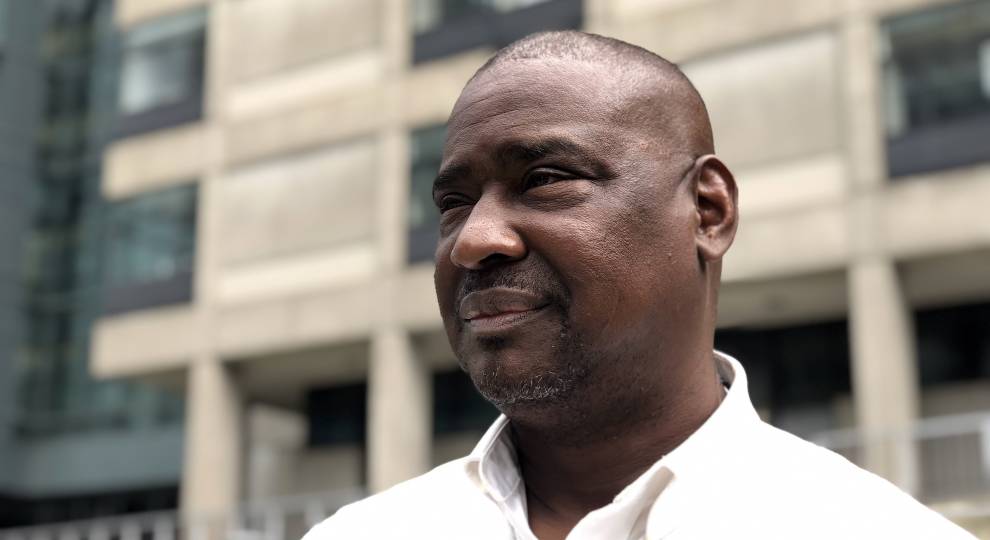Boston Schools Desegregation, Then And Now: Through The Eyes Of A Black Student Who Survived The 1970s Turmoil

Cedric Turner stands in front of what was once the English High School in Boston, Mass., on Sept. 25, 2021. (Meredith Nierman/GBH)
Cedric Turner was 16 years old when bell bottoms were polyester and “The Bump” filled radio airwaves, moving young people to knock their hips together to the beat. It was the dawn of the disco era, with colored lights flashing in nightclubs as music blasted away.
A street-wise kid from Mattapan, Turner was Black, six-foot-two and a standout football player at English High School in the Fenway. Until 1972, English was all boys, with some of the biggest, fastest athletes in the city.
But when Turner remembered the football games recently, his stories weren’t about high school glory days. They were stories of violent racist encounters.
The first year of desegregation, the team’s bus ride into East Boston for a game was harrowing. Angry white people came out of their homes to hurl rocks, bottles and the n-word at the mostly Black players as they arrived.
“We got these parents stoning us and calling us names, throwing sticks and rocks — grandmas, grandpas, mothers and fathers,” Turner said, recalling how the coach told them to duck down in their seats. “They was breaking the windows. And we’re like, what the hell. And then we have to play a game?”
Boston gets its racist reputation in part from the violent, televised reaction to court-ordered school desegregation of the 1970s. That violence was sprawling, and not limited to just South Boston and Charlestown. The thousands of traumatized Black children across the city who experienced it are the parents and grandparents of today’s students.
Key figures from that era say the next mayor of Boston must address the pain, rebuild trust and fix an educational system that, according to Harvard and the Boston Foundation, is once again intensely segregated.
For the full story in this two-part series, including audio, visit WGBH.org.
